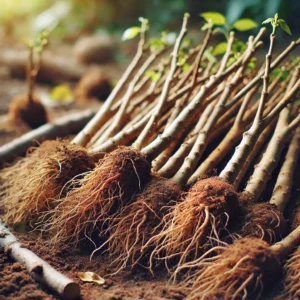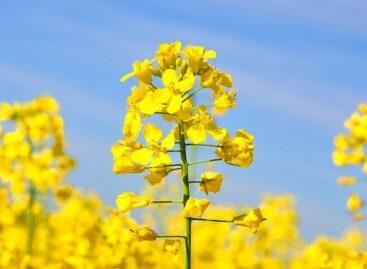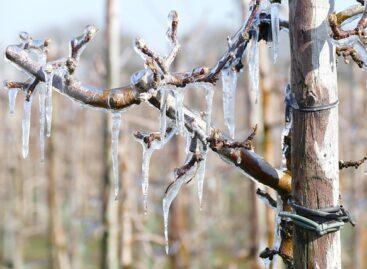It’s time to plant fruit trees in the fall
The production of seedlings, grafts, and fruit-bearing shrubs has begun in domestic fruit nurseries. The National Chamber of Agrarian Economy draws attention to the fact that we should only buy fruit-bearing plants from a controlled, official nursery, where healthy propagating material and variety identity are ensured. However, in order for the planted plant to remain viable, it is worth following the rules of professional tree planting.

(Photo: AI)
The most specialized branch of horticulture, i.e., horticultural cultivation, which requires the most preparation and, above all, the most forethought, is nursery cultivation. The production of nursery planting materials can take two, three or even 4 years, depending on the species and technology. Planting material for factory fruit orchards, but mainly for home gardens, also comes from fruit nurseries. Fruit nurseries play a significant role in the range of fruit available to consumers in this country. Their task is multifaceted: constant, up-to-date contact with breeders must be maintained, new varieties must be sought, varieties that are partially resistant to diseases and grow reliably in the domestic climate.
You need a ripening row of the right varieties. It is necessary to know the cultivation characteristics of the propagated varieties, on the basis of which the given variety can be recommended for planting at all
Leafy fruit grafts must always be defoliated before harvesting, which requires significant manual labor even today. This is primarily necessary for plant physiological reasons, as the leaf grafts produced with free roots would simply dry out due to their evaporation by the leaves. After the mailing, the grafts prepared for extraction are labeled according to the batching, so that mixing of varieties can be avoided. Harvesting is completed by harvesting the plant material for planting. However, in order for a plant professionally grown in the nursery and raised for several years to remain viable when planted at the planter or around the house, to sprout and produce leafy shoots in the spring, a few things must be paid attention to. It is important not to wait too long before planting. The time for autumn planting is limited to the period from the fall of the leaves to the frosts, we definitely avoid planting in frosty weather and soil. If you bought a containerized fruit tree instead of a free-rooted one, thanks to its covered root system, you can in principle plant it at any time, but practice shows that even in this case, we must provide enough time for the plant to start rooting in the soil before frost.
Whether it is more effective to plant in spring or autumn must be decided based on the fruit tree species
Almonds, peaches, apricots, walnuts and chestnuts are very sensitive to winter drying, so it is recommended to plant these species in spring. In the case of apple and berry crops (with the exception of strawberries, which are planted in spring or at the end of summer), autumn planting is more favorable. Based on practical observations, it is better to plant rowan and elder in autumn. It is important to only buy fruit-bearing plants from a controlled, official nursery, where healthy propagating material and variety identity are ensured. We should always find out about the fertility conditions of the fruit variety we want to plant, and if the variety is not self-fertile, we must also plant a suitable pollen-producing variety that blooms at the same time as our chosen variety. Nurseries are ready to help with this. The National Chamber of Agriculture urges all farmers and home garden owners to boldly plant fruit-bearing plants that, in our domestic climate, will delight you with fruit of special intrinsic value. Planting fruit on farms is also supported by the recently published Orchard Planting tender within the framework of KAP ST. But whether it’s a small garden or a plantation of several hectares, remember that by professionally planting and caring for each tree, we contribute to the maintenance of our livable environment.
NAK
Related news
AM: Ministry of Agriculture pays special attention to supporting the horticultural sector
🎧 Hallgasd a cikket: Lejátszás Szünet Folytatás Leállítás Nyelv: Auto…
Read more >Related news
The Hungarian Food Book is 50 years old
🎧 Hallgasd a cikket: Lejátszás Szünet Folytatás Leállítás Nyelv: Auto…
Read more >ZEW: Economic expectations worsened in Germany and the euro area in February
🎧 Hallgasd a cikket: Lejátszás Szünet Folytatás Leállítás Nyelv: Auto…
Read more >








